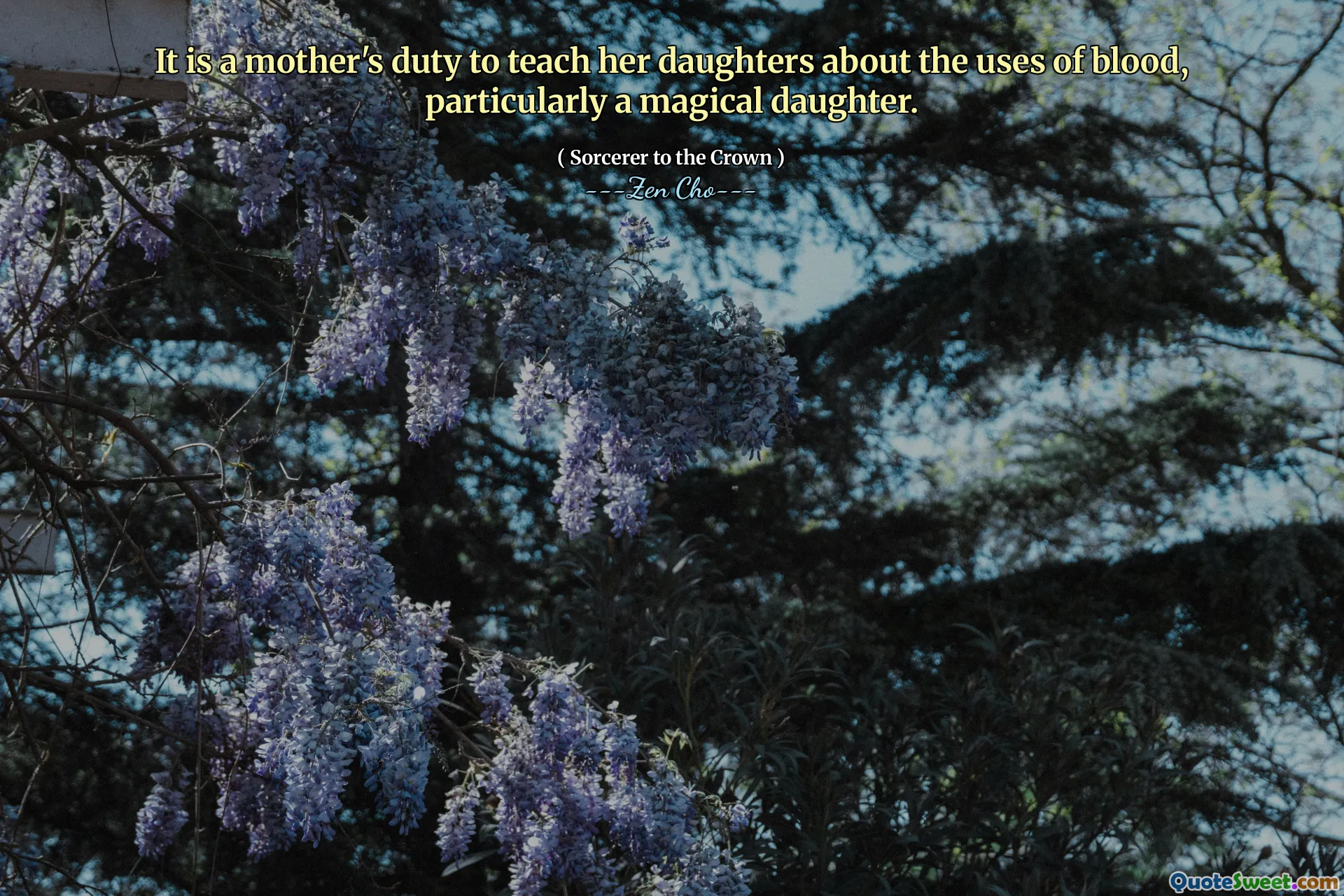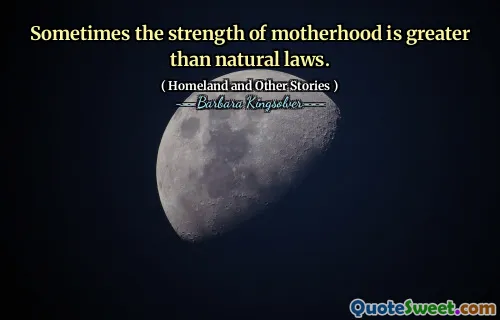
It is a mother's duty to teach her daughters about the uses of blood, particularly a magical daughter.
This quote underscores the often complex and profound responsibility that comes with motherhood, especially when intertwined with notions of magic, power, and identity. In many stories and cultural contexts, blood is emblematic of life, heritage, and even mystical abilities, suggesting that a mother's role extends beyond mere nurturing to encompass the passing of deep-seated knowledge about one's innate powers and ancestral lineage. The phrase 'uses of blood' hints at a cultural or magical tradition where bloodline is integral to understanding oneself and harnessing spiritual or supernatural abilities.
The emphasis on a 'magical daughter' reveals themes of inheritance, destiny, and perhaps the societal expectations placed on young women to navigate and wield their innate skills with responsibility. It raises questions about the intergenerational transmission of power and the unique challenges faced by individuals who are born into worlds where magic is real and consequential.
From a broader perspective, this quote can be interpreted as a reflection of how certain cultures or families view the preservation of heritage and the importance of imparting vital knowledge from one generation to the next. It also evokes an awareness of the sacrifices and teachings that are essential to understanding and controlling one's true nature.
The implication that magic exists within familial bonds deepens the idea of identity being intertwined with ancestry, making it not just a personal journey but a collective one. It encourages consideration of the responsibilities that come with such knowledge, the potential dangers, and the reverence for tradition.
In a contemporary setting or a fantasy narrative, this quote reminds us of the importance of passing on wisdom—especially that which defines our unique identity—while maintaining a sense of respect for the power and knowledge inherited.
(Sorcerer to the Crown) - Zen Cho


